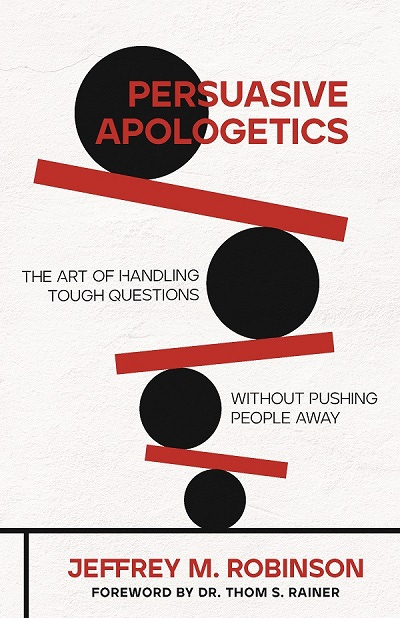Kepler’s Exasperation, St. Augustine’s Exhortation, and the Science and Faith Conversation
By Melissa Cain Travis
For this Roundtable, we’ve been asked to respond to a recent comment or question related to one of our books, articles, or presentations. Not long ago, I received a note from a reader of Thinking God’s Thoughts: Johannes Kepler and the Miracle of Cosmic Comprehensibility who was struck by (and sympathized with) the attitude Kepler had towards Christians who rejected the Copernican (heliocentric) model of the cosmos:
But whoever is too stupid to understand astronomical science, or too weak to believe Copernicus without affecting his faith, I advise him that, having dismissed astronomical studies and having damned whatever philosophical opinions he pleases, he mind his own business and betake himself home to scratch in his own dirt patch, abandoning this wandering about the world.[1]
Kepler is clearly exasperated with fellow believers who, based upon a hermeneutical precommitment, had condemned heliocentrism without any understanding of the geometrical technicalities of astronomy. In reading this passage, I was reminded of St. Augustine’s exhortation to Christians to refrain from ignorant assertions about natural philosophy:
Often, a non-Christian knows something about the earth, the heavens, and the other parts of the world, about the motions and orbits of the stars and even their sizes and distances, … and this knowledge he holds with certainty from reason and experience. It is thus offensive and disgraceful for an unbeliever to hear a Christian talk nonsense about such things, claiming that what he is saying is based in Scripture. We should do all we can to avoid such an embarrassing situation, which people see as ignorance in the Christian and laugh to scorn. The shame is not so much that an ignorant person is laughed at, but rather that people outside the faith believe that we hold such opinions, and thus our teachings are rejected as ignorant and unlearned. If they find a Christian mistaken in a subject that they know well and hear him maintaining his foolish opinions as based on our teachings, how are they going to believe these teachings in matters concerning the resurrection of the dead, the hope of eternal life, and the kingdom of heaven, when they think these teachings are filled with fallacies about facts which they have learnt from experience and reason.[2]
I wonder if Kepler was thinking of Augustine’s seemingly prophetic words when he expressed his frustration with the geocentrists.
Today, the science and faith conversation still suffers from this plight—Christians making uninformed pronouncements that create intellectual obstacles for nonbelievers and needless debate within the church. Sometimes this involves a misunderstanding of scientific data. Other times the problem is a philosophical error or merely a lack of information. I encountered an example of this very recently, when a Christian in a scientific vocation penned an article that referred to intelligent design (ID) as a “fringe” view that doesn’t take evidence into account. This person clearly hadn’t done much (if any) homework on the intellectual history and contemporary prevalence of ID or its extensive use of evidence from a diversity of scientific disciplines to support design argumentation. I wonder how many readers of that article were misled, and what the net effect will be.
Another, more common example is when well-meaning but underinformed Christians make poor or outdated arguments against some aspect of evolutionary theory. In doing this, they hurt rather than help the project of apologetics. This is not to say that there aren’t any good arguments against things like a naturalistic origin of life, universal common descent, or the power of natural selection as a naturalistic evolutionary engine. My point is that there are bad (and embarrassing) arguments that continue to be used, such as the claim that Darwin, while on his deathbed, renounced his own theory as fraudulent.
What’s the solution to this problem? I don’t think there’s a quick, simple answer, but a great rule of thumb for all of us is to investigate science and faith issues thoroughly and from competing perspectives. Read books by those with whom you currently disagree and make sure you accurately understand an issue before critiquing it. If we desire to showcase the intellectual integrity of the Christian worldview, we must always be teachable, exercise charity, and hold our positions with humility, especially when we lack expertise in the subject at hand.
One final note. Lest we should conclude that the natural world can’t serve as a powerful testament to the existence and majesty of God for a person untrained in the natural sciences, consider Kepler’s next words:
He should raise his eyes (his only means of vision) to this visible heaven and with his whole heart burst forth in giving thanks and praising God the Creator. He can be sure that he worships God no less than the astronomer, to whom God has granted this, that with the mind’s eye sees more penetratingly, and that he himself is able and willing to celebrate his God above whatever he discovers.[3]
Notes
[1] Johannes Kepler, Astronomia Nova, trans. William H. Donahue (Santa Fe, NM: Green Lion Press, 2015), 33.
[2] Augustine of Hippo, The Literal Meaning of Genesis Book I, (19):39.
[3] Kepler, 33.
— Melissa Cain Travis, PhD, is an Affiliate Faculty at Colorado Christian University and a Fellow at the Discovery Institute's Center for Science and Culture. She is the author of Thinking God's Thoughts: Johannes Kepler and the Miracle of Cosmic Comprehensibility (2022) and Science and the Mind of the Maker: What the Conversation Between Faith and Science Reveals About God (2018). She serves on the Executive Committee of the Evangelical Philosophical Society and as President of the Society for Women of Letters.
[sponsored]
Critical Dilemma
The Rise of Critical Theories and Social Justice Ideology—Implications for the Church and Society
In Critical Dilemma, authors Neil Shenvi and Pat Sawyer illuminate the origins and influences of contemporary critical theory, considering it in the light of clear reason and biblical orthodoxy. While acknowledging that it can provide some legitimate insights regarding race, class, and gender, Critical Dilemma exposes the false assumptions at the heart of critical theory, arguing that it poses a serious threat to both the church and society at large.
“For anyone left feeling confused, frustrated, and bewildered by the radical shift in culture, this book will be a helpful guide. For anyone buying into the tenets of contemporary critical theory, this book will be a force to be reckoned with.”
— Alisa Childers, host of The Alisa Childers Podcast, author of Another Gospel? and Live Your Truth and Other Lies
See our recent excerpt from Critical Dilemma here.
Find Critical Dilemma at Amazon, Harvest House, and other major booksellers.
Learn more at https://pbaapologetics.com/certificateinculturalapologetics.
Persuasive Apologetics
The Art of Handling Tough Questions Without Pushing People Away
Loving our neighbors well includes engaging in robust conversations that destabilize false belief systems. In addressing the mind, will, and emotions of actual, complex people, Christian believers must develop various approaches to meet diverse personalities and multiple connection points.
In Persuasive Apologetics, pastor and professor Jeffrey M. Robinson explores what's below the surface of intellectual-sounding objections to Christianity. He shows what it means to contend for the truth through real-life examples of communicating with those who hold differing beliefs. Robinson covers foundational and practical issues, such as
the importance of demeanor in being persuasive
various apologetic approaches
the influence of worldview presuppositions
using undercutting defeaters to expose faulty thinking
causes of nonbelief
the historical Jesus compared with figureheads of competing belief systems
the hope that Jesus offers.
Persuasive Apologetics will challenge serious seekers to peel back the layers of skeptical arguments and equip committed Christians looking to hone their apologetics skills.
“Consider this volume a one-size-fits-all text, which is not surprising considering that Jeff Robinson is a pastor with an earned PhD. Accordingly, this book moves from why apologetics is needed to worldviews, methodology, particular tactics, answers to world religions, the problem of evil, and the believer’s final hope of eternity. After all, if Christianity is true, it ought to be applied in very practical ways! Check it out―highly recommended!”
— Gary R. Habermas, Distinguished Research Professor, Liberty University, Lynchburg, VA
Find Persuasive Apologetics at Amazon and other major booksellers.
Don't Follow Your Heart
Boldly Breaking the Ten Commandments of Self-Worship
In Don't Follow Your Heart, Thaddeus Williams debunks the “ten commandments of self-worship,” which include popular propaganda, like:
#liveyourbestlife: Thou shalt always act in accord with your chief end—to glorify and enjoy yourself forever.
#followyourheart: Thou shalt obey your emotions at all costs.
#yolo: Thou shalt pursue the rush of boundary-free experience.
Williams builds a case that this type of self-worship is not authentic, satisfying, or edgy. Instead, it’s rehashing what is literally humanity's oldest lie. He calls on a new generation of mavericks and renegades, heretics who refuse to march in unison with the self-obsessed herd. With a fascinating blend of theology, philosophy, science, psychology, and pop culture, Williams points us to a life beyond self-defeating dogmas to a more meaningful life centered on Someone infinitely more interesting, satisfying, and awesome than ourselves.
“Don't Follow Your Heart is a bold, timely, and enjoyable read. Williams takes the top ten common 'commandments' permeating our culture and systematically shows how they each lead (surprisingly) to misery and brokenness. This is a book I will be recommending wholeheartedly to the next generation.”
— Sean McDowell, Ph.D., apologetics professor at Biola University, popular YouTuber, author of A Rebel’s Manifesto
See our recent excerpt from Don’t Follow Your Heart here.
Find Don’t Follow Your Heart at Amazon, Zondervan, and other major booksellers.
Advertise in The Worldview Bulletin
Do you have a ministry, book, course, conference, or product you’d like to promote to 6,835 Worldview Bulletin readers? Click here to learn how. We’re currently booking for October-November.
Support The Worldview Bulletin
Your support makes The Worldview Bulletin possible! We couldn’t do this without the support of you, our readers. We would be grateful for your help in any of the following ways, which allows us to continue providing our readers and the world with the very best in Christian philosophy, apologetics, and defense of the Christian worldview.
Subscribe to receive regular articles from our team only available to paid subscribers, and gain access to our full archive of scores of past articles and new videos.
Give a gift subscription to a family member or friend who would benefit, or subscribe a group of four or more and save 25%.
Make a one-time or recurring donation.
“Staffed by a very respected and biblically faithful group of Evangelical scholars, The Worldview Bulletin provides all of us with timely, relevant, and Christian-worldview analysis of, and response to, the tough issues of our day. I love these folks and thank God for their work in this effort.”
— JP Moreland, distinguished professor of philosophy, Talbot School of Theology, Biola University, author of Scientism and Secularism: Learning to Respond to a Dangerous Ideology (Crossway)
“The Worldview Bulletin is a must-have resource for everyone who’s committed to spreading and defending the faith. It’s timely, always relevant, frequently eye-opening, and it never fails to encourage, inspire, and equip.”
— Lee Strobel, New York Times bestselling author of more than forty books and founding director of the Lee Strobel Center for Evangelism and Applied Apologetics
“I find The Worldview Bulletin very stimulating and would encourage all thinking Christians to read it.”
— John Lennox, emeritus professor of mathematics, University of Oxford, emeritus fellow in mathematics and philosophy of science, Green Templeton College, author of Cosmic Chemistry: Do God and Science Mix? (Lion)
“The Worldview Bulletin is a wonderful resource for the church. It’s timely and helpful.” — Sean McDowell, associate professor in the Christian Apologetics program at Talbot School of Theology and author of The Fate of the Apostles: Examining the Martyrdom Accounts of the Closest Followers of Jesus (Routledge)
“Are you looking for a way to defend your Christian worldview? If so, look no further. At The Worldview Bulletin you’ll encounter world-leading scholars dispensing truth in a digestible format. Don’t miss out on this unique opportunity to engage in this meeting of the minds.”
— Bobby Conway, Founder of The One-Minute Apologist, author of Does God Exist?: And 51 Other Compelling Questions About God and the Bible (Harvest House)
“The Worldview Bulletin is a wonderful resource for those desiring to inform themselves in matters of Christian apologetics. Learn key points in succinct articles written by leading scholars and ministers. All for the monthly price of a cup of coffee!”
— Michael Licona, associate professor of theology at Houston Christian University and author of Why Are There Differences in the Gospels? What We Can Learn From Ancient Biography (Oxford University Press)
“The Worldview Bulletin shines a brilliant light of truth in a darkening world. These authors, who are experts in their field, consistently provide logical, rational, moral and most importantly biblical answers, in response to the deceitful narratives we are bombarded with daily. I have found it a great source of enlightenment, comfort, and inspiration.”
— B. Shadbolt, Subscriber, New South Wales, Australia







